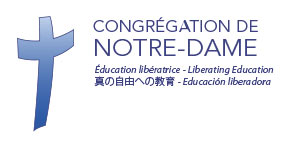Search Help
By default the search engine finds content throughout the virtual exhibition. On the Search page, you can specify which section of the site to search by selecting it from the drop-down menu.
The search engine takes into account the following operators and signs which must be written in English and in capital letters:
- AND The page contains all the words entered
The AND operator is inserted by default in the space between two words entered. It is used to refine searches. When you use AND between search terms, you will only get pages that contain those terms.
For example, if you enter dance show (equivalent to dance AND show) in the search field, you will obtain all the pages that contain the words dance and show. However, if you enter dance show travel in the field, the results will only include the pages containing all three words, excluding those that only contain dance and show.
- OR The page contains any of the words entered
The OR operator is used to broaden your search by connecting two or more synonyms. It enables you to expand your search by specifying additional keywords with the same meaning such as words in different languages or with different spelling.
For example, if you are searching for information on art, you can search art OR painting OR drawing OR sculpture and you will obtain all the elements containing at least one of these terms. You can also find all the pages containing variations of the spelling of a word, such as Madeleine OR Magdalene.
- - The page does not contain any of the words entered
The minus sign “-” directly in front of a term will exclude it to refine your search by eliminating information that is undesirable or too common.
For example, if you wish to find content related to the name Marguerite, but not that of the foundress of the Congregation, you can search for marguerite -bourgeoys.
- “ ” The page contains the exact expression entered
Quotation marks (“ ”) allow you to search for a phrase exactly as it is written. This limits the search by looking for a specific string of words, reducing the number of less relevant results.
For example, if you search “high school” you will only find pages containing this expression with the two contiguous words and not those containing the words “high” and “school” separately in the text.
- ( ) The page contains the result of a combined search expression
Parentheses enable you to define the priority in your search when you combine operators. They have the same function as parentheses in mathematics.
For example, if you search boarding school (Iberville OR Richelieu), the engine will identify the pages containing the words boarding school and the name of one of the two cities specified between parentheses.
Please Note
There is a minimum word length
The search engine only recognizes words with three or more letters. For example, words like of and at will not be considered in the search.
Character String Search
The search engine does not necessarily identify words; rather, it identifies strings of characters present in the text. If you search the word gene, the results will include such words as genealogy, general, generous, genetics, etc.
Uppercase Letters, Lowercase Letters and Accents
The search engine does not take into account whether letters are in uppercase or lowercase, and it does not recognize accents. You will obtain the same results searching Montréal as you will searching montreal.
Abbreviations
The search engine does not understand abbreviations. You must search complete words (e.g., write out Saint and not St.). This is particularly helpful when searching the names of sisters, schools or cities.
Hyphenated Words or Nouns
If you include hyphens when searching for compound words or names you will obtain more accurate results. For example, the results will be more precise when searching for our-lady-of-the-visitation than our lady of the visitation. Removing the hyphens broadens the search.
Searching for Images
If you are only looking for digitized archive documents or illustrations, go to the Archives Gallery page and search using the filters of your choice
